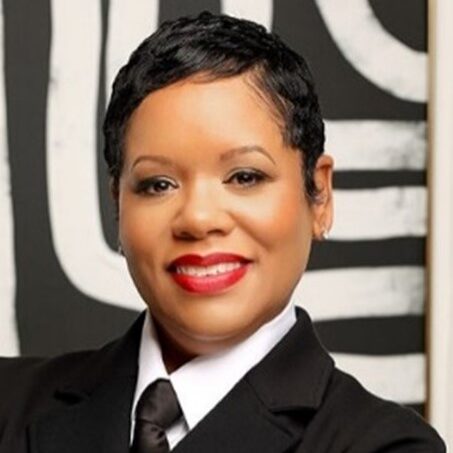Home > News > Enhance Your Leadership and Clinical Skills in Behavioral Health Through Effective Mentorship

Once upon a time in a bustling substance use disorders (SUD) treatment program in Chicago, there was a seasoned therapist named Keitha Bevly. She had been navigating the trenches of SUD treatment care for over a decade, armed with experience and a passion for helping. One day, a fresh-faced chemical dependency counselor named Jamelia was assigned to work with Keitha. Jamelia was eager but overwhelmed by the complexities of clinical work and the emotional weight of the cases.
Keitha took Jamelia under her wing, teaching her the techniques of counseling and how to handle the emotional rollercoaster that often accompanies this challenging work. Under her guidance, Jamelia not only honed her therapeutic skills, she also learned the invaluable art of self-care—a crucial component for longevity working in this field—which has led to a 23-year career as a leader in the field where she has shared her passion and knowledge with practitioners across the globe.
This story illustrates the profound impact mentorship can have in the helping professions. Mentorship goes beyond mere teaching; it is a transformative journey shared by mentor and mentee Through our own research, individual experiences, and feedback and research gathered from other experts in the field, we've identified four main categories of professional growth greatly impacted by effective mentorship, especially for those working in counseling, recovery support services, and the broader scope of behavioral healthcare.
Building Competence
Mentorship provides a safe space for less experienced professionals to learn and practice new skills under the supervision of a seasoned practitioner. Mentors provide expert guidance, practical experience, and constructive feedback, helping you to successfully navigate the unique challenges of helping professions. Providing hands-on guidance and sharing their expertise accelerates a mentee’s skill development and helps them build confidence and competence when practicing in real-world situations.
Mentors have helped me in direct practice and when I became a behavioral health entrepreneur mentors helped me grow my business.
- Paul Jordan, Executive Director, Uptown DUI Services
Confidence
You have a very important job as a helping professional. You help others navigate life and death situations. The high-stakes pressures of helping professions can lead to anxiety and fear of mistakes. A mentor inspires self-confidence by recognizing your potential and encouraging you to see and believe in your own abilities. Mentors help us to see past immediate situations and trust our own capabilities.
I don't care what you do for a living, if you do it well, I'm sure there is someone cheering for you or showing you the way. A mentor.
- Denzel Washington
A mentor is someone who helps you see the hope within yourself.
- Oprah Winfrey
Career Advancement
Effective mentorship opens doors. Mentors help mentees to network, identify opportunities for advancement, and often advocate on their behalf, accelerating career progression in ways that would be challenging on one's own. When done well, mentoring relationships are also mutually beneficial, and each person inspires the other in different ways and at different times.
If I have seen further, it is by standing on the shoulders of giants.
- Sir Isaac Newton
My growth, my perspective, and my worldview are expanded because of mentorship. Developing the next generation is my Why. I have mentored others who now mentor me.
- Lonnetta Albright, President, Forward Movement Inc.
When I was getting started in my career, I sought out the top experts in several areas of the addictions profession including, the top researchers, pharmacologists, medication-assisted treatment doctors, and treatment specialists. I contacted each one and said to them, I think I can learn from you. That mentorship really helped launch my career.
- William White, Addictions Historian and Senior Research Consultant
Continuity of Care
I have often said, show me a successful person and chances are they have benefitted from mentorship in their work and life (Sanders). It’s important that experienced helpers share their knowledge and training with those who are just entering the field. By mentoring the next generation of leaders, we can collectively ensure the values of compassion, empathy, and patient-centered care are passed on. This professional continuity helps us grow as clinicians and as people, and more importantly, it supports the quality of care provided to those we serve.
Today, most of the mentors are supervisors and directors. When I was becoming a counselor, our mentors were experienced counselors who took us under their wings and helped guide us toward greater clinical effectiveness.
- Denise Eligan, Grant Writer
In Odyssey, Homer shares the story of Telemachus, who is deeply touched by what he sees in a man named Mentor. Telemachus goes to Mentor for help with his personal growth and their relationship is filled with challenges, struggle, and joy. This is the nature of many mentoring relationships with the ultimate goal being a mutually beneficial relationship leading to growth.
The benefits of mentorship in helping professions are far-reaching, impacting not only the individuals directly involved but also the larger community they serve. Whether you’re a seasoned professional considering taking on a mentorship role, or a newcomer hoping to navigate the complexities of our field, remember that mentorship can be a key to unlocking potential and propagating the cycle of learning and growth. Mentorship is not just about building a career; it’s about building a community of skilled, compassionate providers ready to make a difference.
My growth, my perspective, and my worldview are expanded because of mentorship. Developing the next generation is my Why. I have mentored others who noI have sought out mentorship to help me explore my gifts. I sought mentorship from Bob Carty because of his mastery of studying and going deeper into how we see our clients. Elizabeth Vastine mentored me on how to get spiritually and emotionally centered prior to facilitating healing circles and Luis Rodriguez taught me the power of connecting with the ancestors when we are doing sacred work.w mentor me.
- Carlos Rodriguez, Program Director, Westcare Illinois
Let us strive to be like Keitha, William, Lonnetta, Carlos, Paul, and Denise, for in nurturing our colleagues, we are ultimately nurturing the very heart of our profession. Join us for a deeper dive into the mentorship relationship in behavioral health by attending our upcoming webinar Enhance Your Leadership and Clinical Skills in Behavioral Health Through Effective Mentorship on June 30 from 10–11:30 a.m. CT/11 a.m.–12:30 p.m. ET.
Let's create ripples that turn into waves of positive change in the helping professions.



Jamelia Hand, MHS, CADC, CODP, is a seasoned opioid addiction consultant, speaker, trainer, and author within the SUD/OUD healthcare sector. Ms. Hand maximizes her extensive executive experience to deliver compelling keynote speeches, engaging workshops, and dynamic training sessions that motivate and inspire action in addiction and mental health treatment, service delivery, overdose prevention, and staff motivation. Her expertise is highlighted in national publications, and she has held significant roles such as Deputy Director in Illinois, VP of Reentry, and leadership positions in global addiction medication and technology companies, enhancing access to quality care nationwide. For more information, visit vantageclinicalconsulting.com.
Mark Sanders, LCSW, CADC, is the Illinois state project manager for the Great Lakes ATTC, MHTTC, and PTTC. He's an international speaker and behavioral health consultant whose presentations and publications have reached thousands throughout the United States, Europe, Canada, West Indies, Lithuania, and Guam. Hes the recipient of four lifetime achievement awards, including NAADAC’s prestigious Enlightenment Award, the National Association for Addiction Professionals’ 50th Anniversary Legends Award, the Illinois Certification Board's Professional of the Year Award and Jessica Hayes Lifetime Achievement Award, and the Barbara Bacon Award for outstanding contributions to the social work profession as an alumnus of Loyola University.